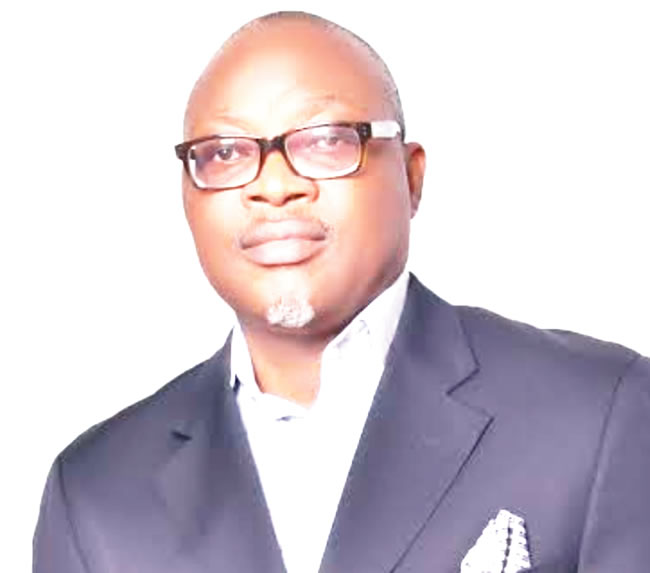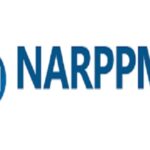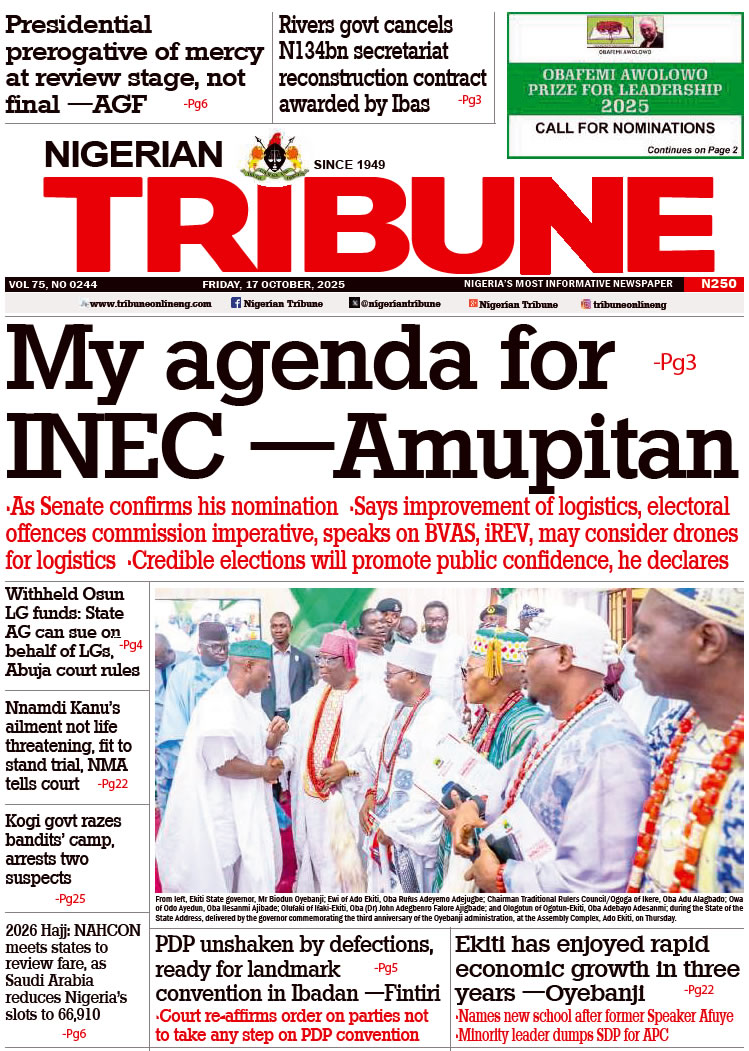Sola Enitan, a lawyer, estate surveyor and valuer, is the Founder and Chief Executive, Cromwell PSI. In this interview with DAYO AYEYEMI, he speaks on the problem of the Nigerian housing sector and useful suggestions on how to overcome the identified problems in order to promote mass and affordable housing among Nigerians.
What can you say about Nigeria’s housing sector after six decades of existence?
Nigeria’s housing sector is a critical part of its socioeconomic structure of the nation, but is characterised by significant challenges. The country faces a housing deficit estimated to be between 17 to 20 million units, compounded by high population growth at about three percent annually, rapid urbanisation due to infrastructure deficits in rural areas, and stagnant income levels oscillating currently at about 50 percent per day.
While some efforts have been made to bridge this gap, such as the National Housing Fund (NHF) and various state-level initiatives, they have largely failed to meet the growing demand for affordable housing due to several socio-economic malaise including corruption.
What are the challenges?
Challenges of the sector include High construction costs due to expensive building materials and inflation; low mortgage penetration, where only about 3.5 – 5 percent of Nigerians have access to mortgages; poor access to affordable land, especially in urban centers, due to inadequate land-use policies and bureaucratic bottlenecks in securing title deeds.
What will you say about Nigeria’s mortgage and building materials sub-sectors?
The mortgage market is underdeveloped and largely inaccessible to the average Nigerian. A high interest rate regime, generally in the region of 20-30 percent, makes mortgage financing unviable for most people, with the value of loans now doubling every three to five years.
Furthermore, the typical loan tenure (10 to 20 years) is insufficient to provide manageable monthly repayments. The sector needs long-term funding to provide long termed loans. The non-availability of pension and other long-term funding pots in the market prevent growth and leave the mortgage institutions perpetually gasping for air.
Negative equity is prevalent, where rents receivable in most cases fall far below monthly mortgage repayments, causing severe financial strain for homeowners. This discourages uptake in home ownership via mortgages and limits the market’s overall growth, whilst exacerbating corruption and rent-seeking practices all across the institutional fabric of the nation.
In the building materials sub-sector, the cost of building materials in Nigeria has seen consistent increases due to inflation, currency depreciation, and high import dependence. Local production of key materials such as cement and steel remain limited, leading to price volatility and unaffordable construction costs.
Majority of the materials employed in finishing of homes are largely imported, thereby further straining an already struggling sector.
What are the key challenges?
The key challenges include high interest rates: Interest rates remain a significant barrier, with most mortgages carrying rates above 20 percent to 30 percent. This makes home financing unaffordable for the majority of Nigerians, pushing them into either renting or informal housing solutions. Nigeria’s slums are burgeoning with growth and housing improvisation.
Access to land: The Land Use Act of 1978 continues to be a bottleneck in making land available for housing development. Acquiring land for construction is still cumbersome, time-consuming, and expensive due to bureaucratic hurdles and the danger of fraudulent land transactions is on the increase.
Negative equity: Rent across most urban areas, especially in cities like Lagos and Abuja, remains far below mortgage repayments. For 90 percent of the market, rent does not cover the mortgage, creating negative equity and discouraging investment in real estate.
What are the strategic concepts to alleviate the challenges?
To overcome these challenges, Nigeria needs a multi-faceted, collaborative approach, combining government policy and reforms, private sector investment, and international assistance. A strategic initiative to consider is the Public-Private Housing Development Partnerships (PPHDP) concept, which can address the supply-demand imbalance, affordability, and financing issues by Government-led land reforms:
- Revise the Land Use Act to streamline land acquisition and titling processes, reducing the costs and time associated with obtaining land for housing projects.
- The government should unlock land for development, particularly for affordable housing, by offering public land at reduced rates for projects that meet affordability criteria.
III. Land market auctions should be explored. This requires the government placing large swathes of lands ready for development on the auction block on a regular basis to attract capacity developers as against its current secretive allocations style, which lacks accountability and transparency.
2. Subsidised mortgage schemes and interest rate caps:
I. The Central Bank of Nigeria (CBN) should collaborate with mortgage banks to cap interest rates on mortgages for low and middle-income earners. This could be achieved through targeted subsidies, or creating a lower-interest loan pool funded by government and international donors.
II. Extend mortgage repayment terms to 30 years and create more flexible repayment structures, making monthly payments more manageable by creating longer termed cross-generational repayment.
III. Land cost to development should be spread across the 99-year lease holding period to enable delivery of cheaper and more affordable housing. If land valued at N100 million is spread across a 99-year repayment period and the built space over a 50 year period, Nigeria’s housing accessibility would definitely be faster and more affordable.
- Incentivizing local production of building materials: I. Encourage domestic production of critical building materials like cement, steel, and roofing sheets by offering tax breaks, subsidies, and other incentives to local manufacturers.
II. Set up dedicated industrial zones for building material production, particularly in regions with abundant natural resources, to reduce import dependence and lower the cost of materials.
III.Enforcement of direct sales platforms for all cement manufacturers in order to enable developers access cement for mass housing projects at dealers rates thereby deregulating product access.
- National Housing Fund (NHF):
I. Create a new or restructured national housing finance fund that specifically targets low-income earners and informal sector workers. This fund could provide housing loans at significantly reduced interest rates.
II. The NHF could also partner with international organizations to access grants or concessional loans aimed at affordable housing development.
III. Provide securitisation opportunities to encourage funding from the securities exchange market
- Rent-to-Own schemes: Implement rent-to-own schemes for low- and middle-income earners, allowing tenants to eventually own the property they rent. This can bridge the gap between high mortgage rates and the unaffordable rental market.
- Alternative construction methods: Invest in alternative and innovative construction methods like modular housing, 3D printing, or the use of more sustainable materials like bamboo or recycled materials. This can significantly lower construction costs and timelines.
READ ALSO: Northern govs, Emirs reject tax reform bill
WATCH TOP VIDEOS FROM NIGERIAN TRIBUNE TV
- Relationship Hangout: Public vs Private Proposals – Which Truly Wins in Love?
- “No” Is a Complete Sentence: Why You Should Stop Feeling Guilty
- Relationship Hangout: Friendship Talk 2025 – How to Be a Good Friend & Big Questions on Friendship
- Police Overpower Armed Robbers in Ibadan After Fierce Struggle






